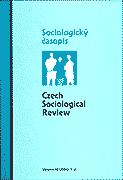
Keywords: intergenerational family relations; theories of the family support; intergenerational solidarity; intergenerational ambivalence; gerontosociology
The author deals with the issue of family relationships and the exchange of help and support within a family. She analyses the development of theoretical studies of this problem in Western sociology in the past ten years. The article is linked to a previous article the author published in the Czech Sociological Review in 1996, in which she summarised the preceding decade. This time the article is not conceived as a ‘classical’ survey, but instead the author deliberately selects and presents the approaches, perspectives, theories and concepts of relational support in order to identify the main feature of theoretical development in the given period, which in the author’s opinion is a tendency to try to overcome the still strong influence of the theory of structural functionalism and its normative concept of relationships between family generations. The logical framework of the analysis is formed by a confrontation between the model of intergenerational solidarity and the alternative concept of ambivalence that is currently asserting itself. In the article the author also refers to the results of her empirical research and links them to the concept of ambivalence in relation to interpretative sociology.
More...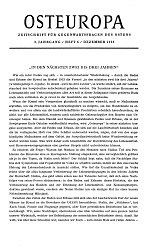
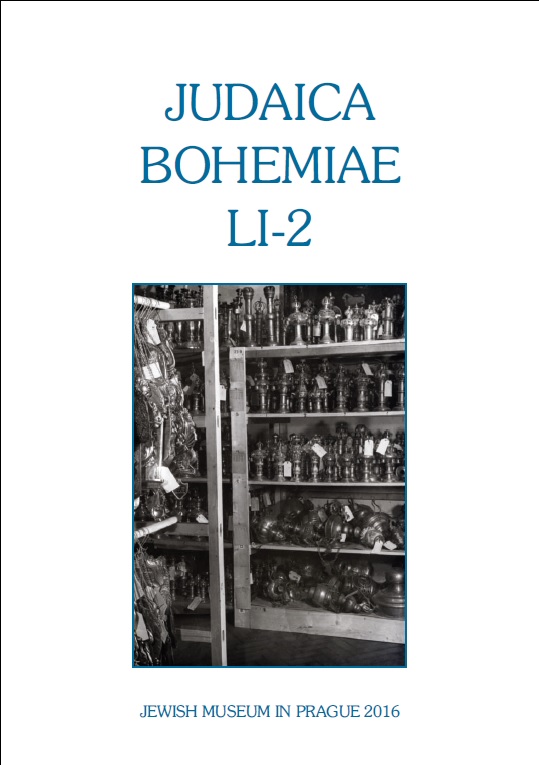
Keywords: jewish communities;Moravia;19 Century;workshop;
The workshop Remnants of the Past or Laboratories of Modernity? The Jewish Political Communities in Moravia after 1848 and their Archival Sources was organized from 3 to 5 May 2016 in Olomouc by the Jewish Museum in Prague and the Masaryk Institute and Archives of the Czech Academy of Sciences in co-operation with the Kurt and Ursula Schubert Centre for Jewish Studies at the Faculty of Arts, Palacký University Olomouc. It dealt with a rather marginal topic of the Jewish history of Moravia and Central Europe and an almost forgotten topic of modern Moravian history in general – with the Jewish townships that were established in the aftermath of the failed revolution of 1848 on the territory of the former Jewish ghettos or streets in the suburbs of Christian towns. These Jewish municipalities which emerged from premodern Jewish autonomy thus stood in contrast to the abolition and confusion of former Jewish towns in the course of 1848, as for example in Prague.
More...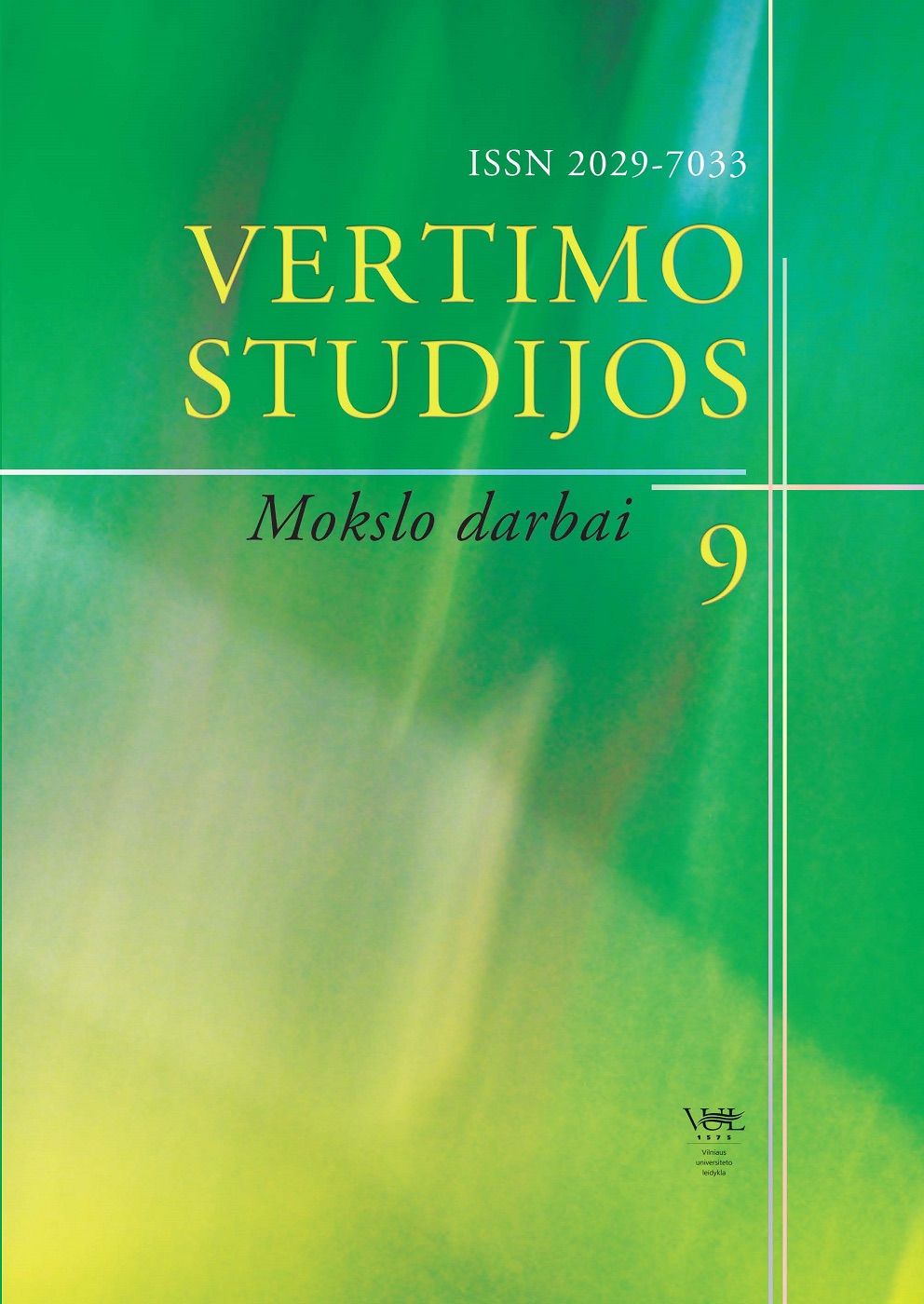
Šio straipsnio dėmesio centre – hermeneutinė vertimo teorija ir jos taikymo aspektai. Hermeneutinė vertimo teorija išsivystė, kaip atskleidžiama darbe, iš pažinimo, t. y. hermeneutinės, filosofijos krypties, ypač iš Hanso Georgo Gadamerio (1900–2002) pažinimo interpretacijos, ir buvo pritaikyta vertimui kaip specifinei pažinimo sričiai. Vokietijos hermeneutinės vertimo teorijos mokykla, išaugusi šalia funkcionalizmo krypties, ir jos ryškiausi atstovai – Hansas Georgas Gadameris (2006), Fritzas Paepcke (1986), Radegundis Stolze (1992, 2003, 2011), Sigrida Kupsch-Losereit (2008) – suformulavo teorinę nuostatą, kad vertimas yra visų pirma pažinimas ir supratimas, taip pat interpretacija. Kadangi vertimas – tai teksto ir jo reprezentuojamos kultūros interpretacija, taigi ir socialinė paslauga, kurios užduotis – sėkmingas bendravimas tarp kultūrų, o ne lingvistinis žinios ar fakto perdavimas. Laikantis tokios nuostatos, itin didelę reikšmę įgyja vertėjo interpretacinis teksto supratimas, hermeneutinio pažinimo nulemtas vertėjo santykis su tekstu. Šiame darbe atlikta teisinių tekstų analize siekiama tai patvirtinti ir atskleisti. Straipsnyje remiamasi R. Stolze aptariamais kalbos specialiesiems tikslams (dalykinės kalbos) interpretacijos aspektais, be to, jie sujungiami su funkcionalizmo atstovės Christiane’s Nord (2005) išskirtais ekstratekstiniais veiksniais, pagal kuriuos mokslininkė siūlo analizuoti visus tekstus, nepriklausomai nuo žanro, mokslo srities ir kt. – tai leidžia pailiustruoti, kaip sąveikaujant dviem teorijoms atsiskleidžia vertėjo pasirengimas versti tekstą dar nė nepradėjus tradiciškai suvokiamo vertimo darbo – kodų kaitos.
More...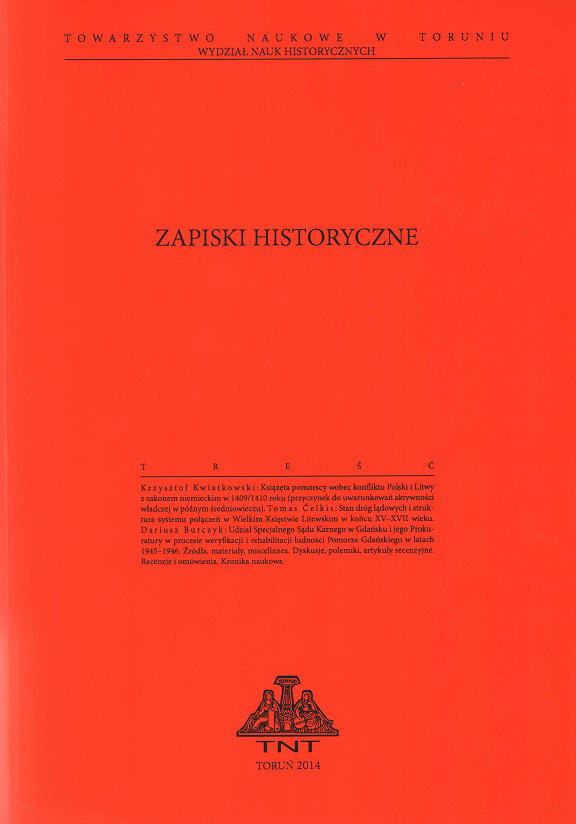
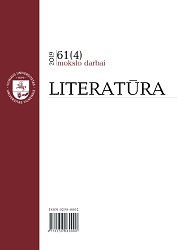
Keywords: literary translation; author’s style; language registers; self-censorship; taboo; euphemisation; neutralisation; Michel Houellebecq;
The article analyses all five published translations to Lithuanian language of Michel Houellebecq’s novels (The Elementary Particles, Platform, The Possibility of an Island, The Map and the Territory and Submission) with a focus on translation of obscene and profane language. First, the usage of obscene and profane language for stylistic purposes in the context of entire Houellebecq’s literary creation is reviewed, based on the works about the author by literary translators, literary critics and translators of Houellebecq’s books from France, Switzerland and Brazil. After determining that obscene and profane language is one of the keys to the meaning of Houellebecq’s work and discussing peculiarities of the usage of such language in Lithuania (censorship, self-censorship, taboo), the translation analysis of the novels is presented. Such translation methods as exact translation, euphemisation, neutralisation and omitting were reviewed. After completing a qualitative analysis, it was established that Lithuanian translators clearly avoid using obscene and profane language and rather choose euphemisation, neutralisation or omission. The results of the qualitative analysis presented in the article confirm this tendency: overall, approximately 50 percent of all obscene and profane Houellebecq’s language was replaced with euphemisms, neutralised or omitted. Translation mistakes and inaccuracies were not separately analysed in this article, therefore were not presented in percentage terms. After completing the research, it can be stated that the translations of Houellebecq’s novels to Lithuanian language significantly lack in meaning and it would not be appropriate to discuss Houellebecq’s works in the literary discourse after reading them only in Lithuanian language. Moreover, a faulty tendency of translating each author’s book by a different translator is present in Lithuania, resulting in distortion of author’s style. Therefore, literary paradoxes of Houellebecq (according to Bruno Viard) result in paradoxes in translation to Lithuanian language: obscene and profane language still remains a certain sociocultural taboo, and one appropriate novel’s translation (The Possibility of an Island) out of five does not change the essence of the issue because the remaining four do not reflect author’s style and chosen registers. Translators must respect the will of a writer and refuse to translate the work if it presents an issue in terms of their sense of morality and ethics.
More...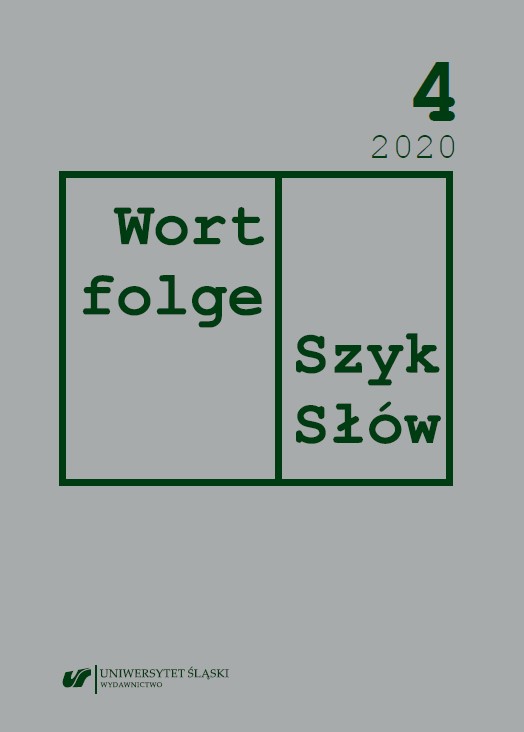
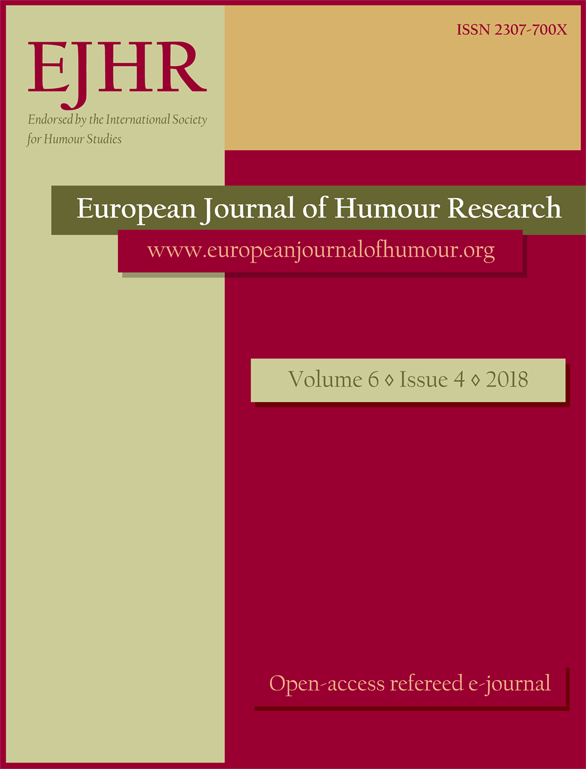
Keywords: 21st century Nigerian women’s poetry; feminism; humour; poetic devices
21st century Nigerian women poets have continued to utilise the aesthetics of literary devices as linguistic and literary strategies to project feminist privations and values in their creative oeuvres. There has been marginal interest towards 21st century Nigerian women’s poetry and their deployment of artistic devices such as satire, humour, and parody. Unequivocally, such linguistic and literary devices in imaginative works are deployed as centripetal force to criticise, amidst laughter, the ills of female devaluation in the society. The major thrust of the study, therefore, is to examine how satire, humour and parody are deployed in selected Nigerian women’s poetry to reproach and etch the collective ethos of women’s experience in contemporary Nigerian society. The study utilises qualitative analytical approach in the close reading and textual analysis of the selected texts focusing mainly on the aesthetics of humour, satire, and parody in challenging male chauvinism in contemporary Nigerian women’s poetry. Three long poems: “Nuptial Counsel”, “Sadiku’s Song”, and “The Sweet, Sweet Mistress’ Tale” by Mabel Evweirhoma and Maria Ajima respectively were purposively selected. The choice of the selected poems hinges on the artistic vigour, especially the evoking of laughter, mockery and condemnation of hegemonic structures through the use of satire, humour, and parody. The paper employs Molara Ogundipe’s Stiwanism, an aspect of Feminist theory in the analysis of the selected poems. The poets have shown the interventions of humour, satire, and parody as linguistic devices in condemning and highlighting peculiarities of women peonage in Nigeria.
More...
Keywords: touristic area;tourists;mass tourism;ecotourism;density-dependent effects;population regulation;r and K strategy;TALC model
Richard Butler’s Tourism Area Life Cycle (TALC) model proposes a specified view on the qualitative changes in the number of tourists N in the area over time and the environmental, social and economic processes taking place there simultaneously. N changes follow S-shaped curve up to stagnation phase. Such a course was adopted in the TALC model, assuming that the tourist population at this stage develops in accordance with a logistic model derived from ecology. This work aimed to recall the properties of the logistic model and the ecological assumptions underlying it, and some of the consequences of incorporating the logistic model into the TALC model. An attempt has also been made to link other TALC aspects with ecology. In particular, reference is made to the graph on the right side of the logistic equation of the TALC model as a function of N with the phases of evolution of the tourist area marked, which reminds that the most attractive area is the original area, i.e. when N is small, as it is characterized by the highest per capita growth of the tourist population. According to this figure, as N increases, there is a linear decrease in attractiveness despite the investments introduced according to the TALC model scenario, i.e. they do not reverse this trend. The same diagram can be used to show some elementary differences between ecotourism and mass tourism. The issues of population regulation were also raised, including the density-dependent self-regulation, the Allee effect, the concept of environmental capacity and r and K strategies. It was also pointed out that the experience gained in the field of population modelling in ecology could help to model tourist populations.
More...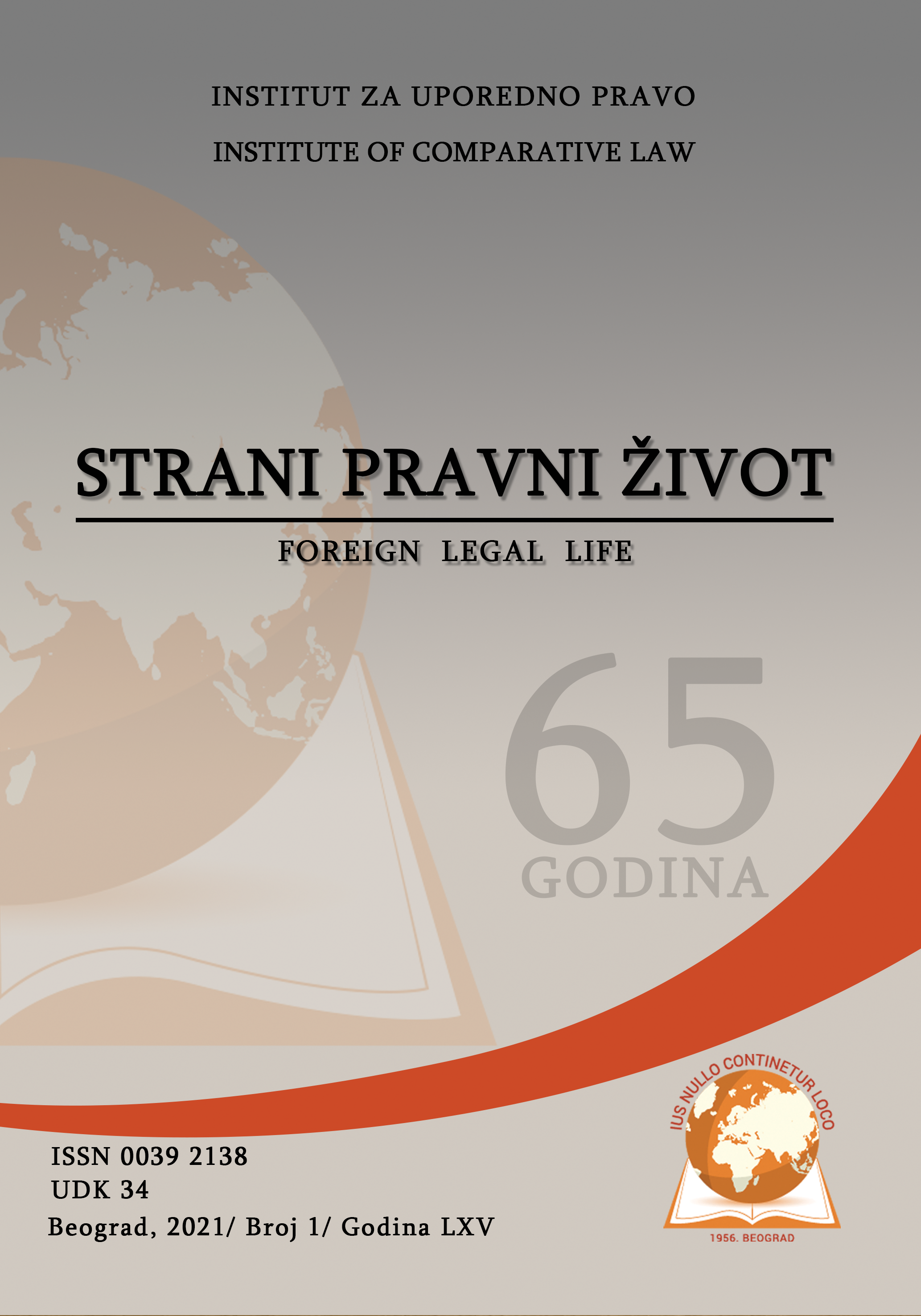
Keywords: Uses and Gratifications Theory; Viewers; Sierra Leone; Entertainment;
The study was inspired by the uses and gratification research on reality television and it examines the viewing motives of viewers that watched the famous Sierra Leonean reality TV show ‘Housemates Salone season two’. The study adopted a quantitative research method in the form of a survey questionnaire instrument completed by participants. The results revealed that young people between the ages of 18–24 and 25–34 (students and singles) dominated the show’s viewer demographics, accounting for almost 80% of ‘Housemates Salone season two’ viewership. Findings indicated that 43.6% of viewers watched the show for 3–4 hours daily, while eviction shows, Saturday parties and diary room sessions accounted for viewers’ most liked aspect of the show. Despite the fact that four motives (entertainment, voyeurism, social interaction, and relaxation) were discovered to be the main motives for watching ‘Housemates Salone season two’, the entertainment motive was found to be the most important motive that piqued viewers’ interest in watching the show. This study serves as a stepping stone for reality television research in Sierra Leone as it motivates academics and administrators to conduct more studies and invest more in reality entertainment.
More...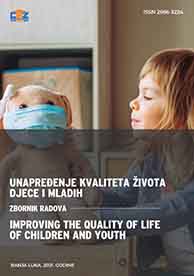
Keywords: parents; children; mental health; stress;
Mental health is capacity of a full and creative life living and is linked with physical health and social functioning. Therefore, it has an important social value. Changes in mental health, new situation and new life conditions and functioning present a large inconvenience with several challenges. The challenges are seen in a social isolation of parents, stigmatization and judgment of society. In the same time, parents do not know where to find a support in order to adapt themselves to new situation and keep functionality of the family. Donenberg & Baker (1993) emphasize that disabilities such as autism, problematic behavior, emotional instability, and psychical decompensations are the real 'problems of psychical health' that generate negative impact on parental social life and emotions related to parenthood. This information contributes more to parents’ stress, family interactions or social status. This paper attempts to present parents' position and their strategies of adaptation to their children mental disabilities and to maintain functioning of their family. In order to better understand the life of family and a child of mental disabilities and community’s attitudes towards them, we will present a research accomplished at the Department of children and adolescent psychiatry in Sarajevo. Parents and children who need support of this institution were included in this research.
More...Keywords: Anthropology; Cultural Linguistics; Persian Language and Culture; Proverbial Discourse; Literary Translation;
Through the symbolic stories derived from Persian folklore, some of the actual anthropological environmental domains in Iran are conceptualized culturally and reflected in Persian animal-related proverbs. Translating these rich cultural conceptualisations underlying proverbs from the Persian world to the Western world, where the cultural and linguistic gaps between these two worlds are conspicuous, necessitates applying a coherent multidisciplinary approach. An approach that reconciles two fields, language and culture, which have, paradoxically, been antagonistic in Translation Studies (Koskinen, 2004, 2010, 2014), as an intertwined, interdependent and inseparable approach. Adopting such a cutting-edge approach to translation, namely Cultural Linguistics (Sharifian, 2017b) approach, for the first time in translation history, and through a careful analysis of numerous examples from Persian, we demonstrate that in current translation approaches, cultural conceptualisations underlying the wit and wisdom of the proverbial discourse are lost. Hence, we question current translation approaches through dif erent systems of cultural conceptualisations (cf. Sharifian, 2018) that each particular speech community draws upon in intercultural communication. Moreover, we argue that translation is not “only” a problem of language, but also, more importantly, a problem of systems of cultural conceptualisations underlying language and language use.
More...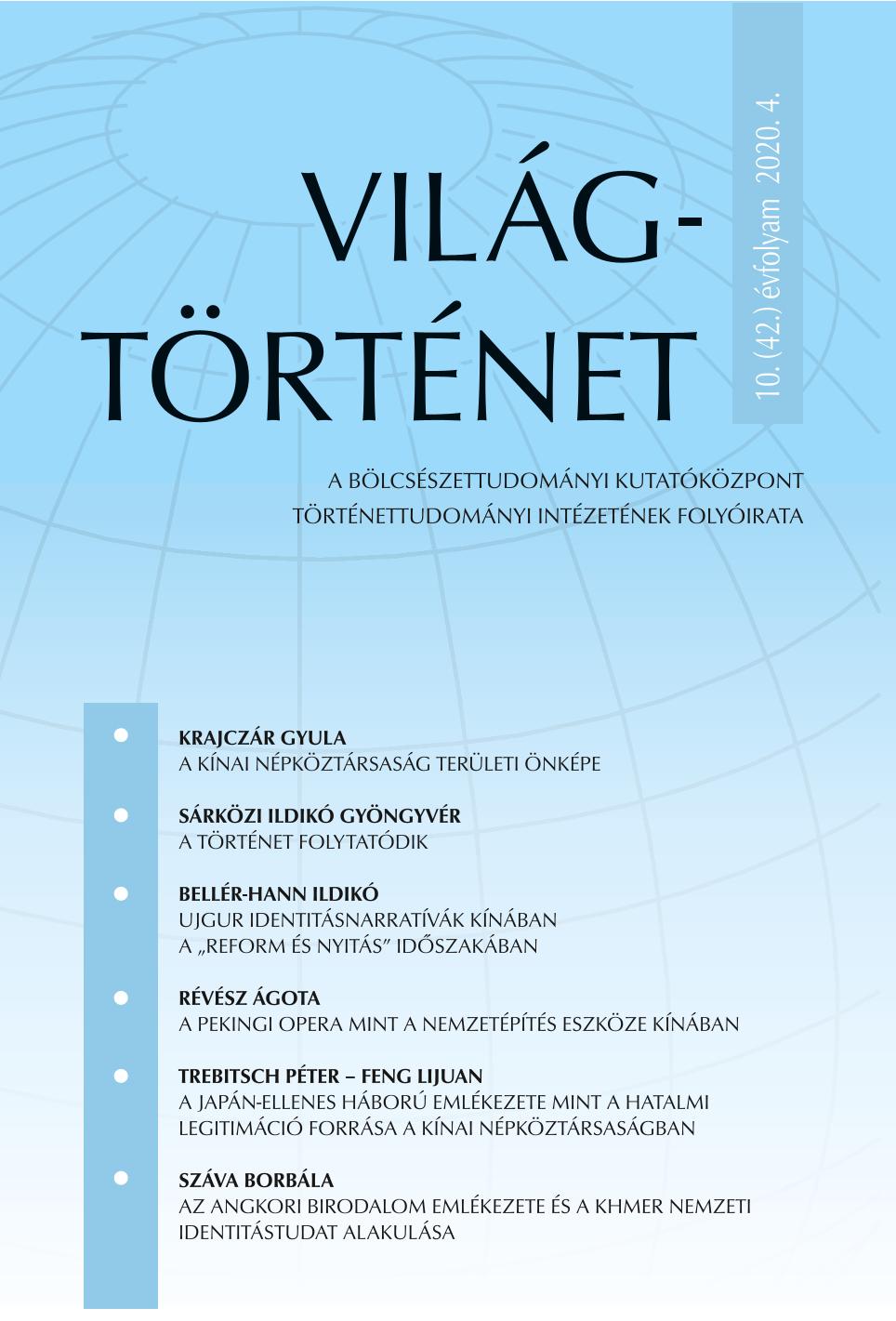
Jewish Refugees in Shanghai 1933–1947: A Selection of Documents. Ed.: Eber, Irene. Göttingen, Vandenhoeck & Ruprecht, 2018. 718 p. (Archive of Jewish History and Culture / Archiv jüdischer Geschichte und Kultur, 3.)
More...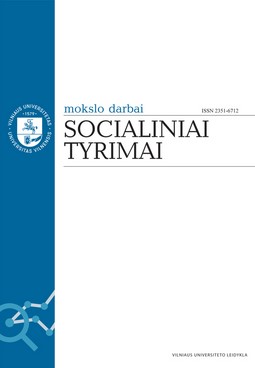
Keywords: Social Responsibility; Public Administration; Employment;
The public sector provides many different jobs in Latvia; however, the number of people employed in the public sector is small. Sometimes private sector organisations with a socially responsible culture are more attractive for specialists. The authors propose to evaluate Social Responsibility’s (SR) importance, benefits, and ways of possible implementation for several types of public sector organisations. The objective of this paper is to enquire what kind of activities organisations need to carry out to be included in the Sustainability Index rating and overview the possible reasons of difficulties encountered by public organisations. The authors describe the structure of the public sector and the Sustainability Index (SI) mechanism in Latvia and evaluate public organisations included in the SI rating by their activities directed to sustainable development; i.e., socially responsible (SR) activities
More...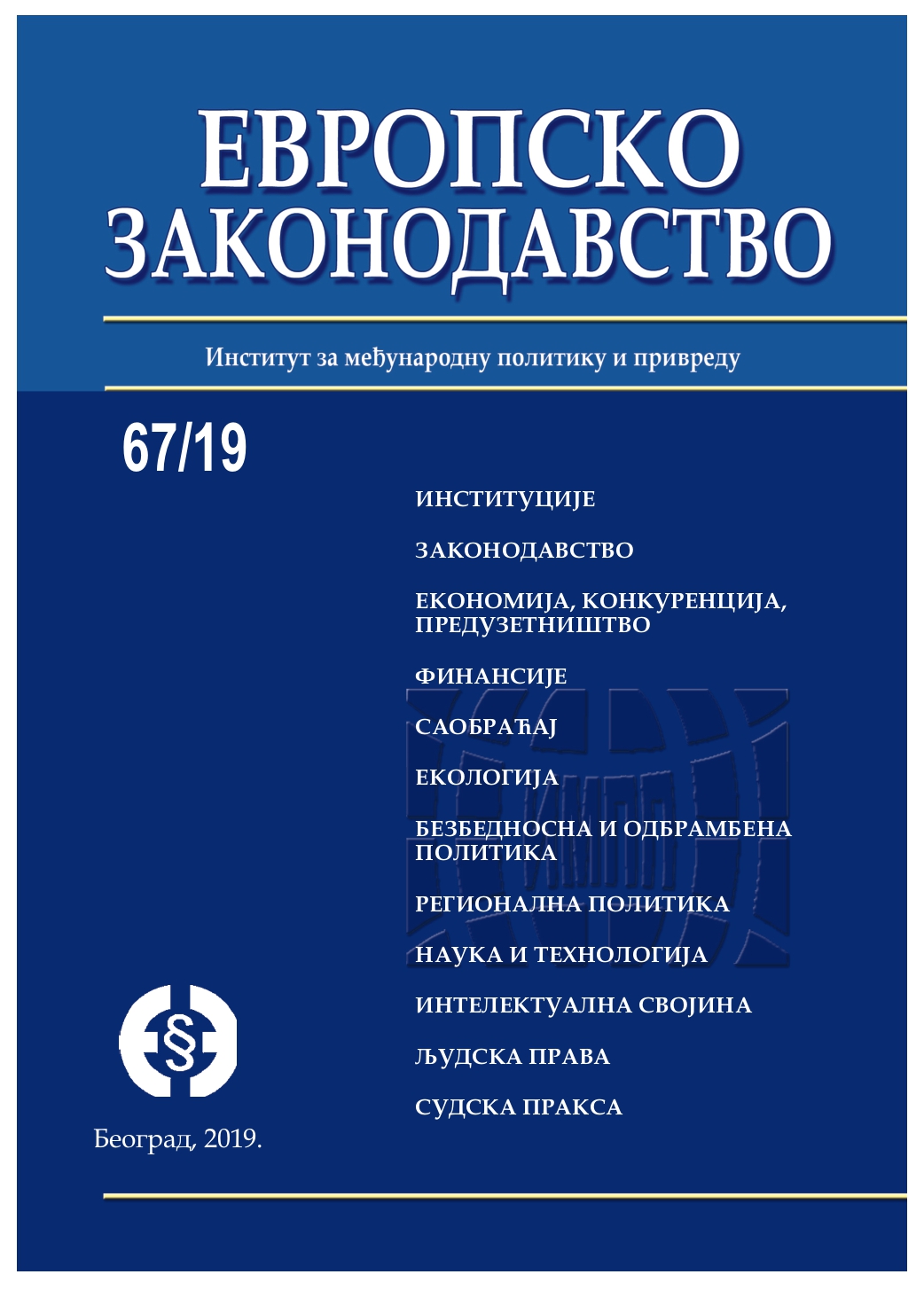
Keywords: Money laundering;financing of terrorism;harmonization of legislation;prevention;Serbia;European Union;
After Serbia entered into the enhanced supervision procedure by the Committee of Experts of the Council of Europe for Evaluation of Measures against Money Laundering and Financing of Terrorism (MONEYVAL), the problem of harmonization of domestic regulations with European and international standards, first of all with the recommendations of the Financial Action Task Force (FATF)from February 2012, was updated. Since Serbia is leading negotiations on EU accession, it must fully harmonize its legislation with European standards in this area, in particular with the Fourth Anti Money Laundering Directive (Directive 2015/849 of the European Parliament and the Council of 20 May 2015 on the prevention of the use of a financial system for the purpose of money laundering or terrorist financing). Although Serbia at the beginning of 2019 made progress in meeting the FATF recommendations, it will have to take concrete measures from the action plan in the coming period to avoid the risk to remain on the so-called "blacklist" of countries that do not respect international standards in this field. Lack of political will to complete international obligations in this area could be a decisive factor in stopping institutional reforms and then, quite certain, the process of Serbia's accession to the European Union.
More...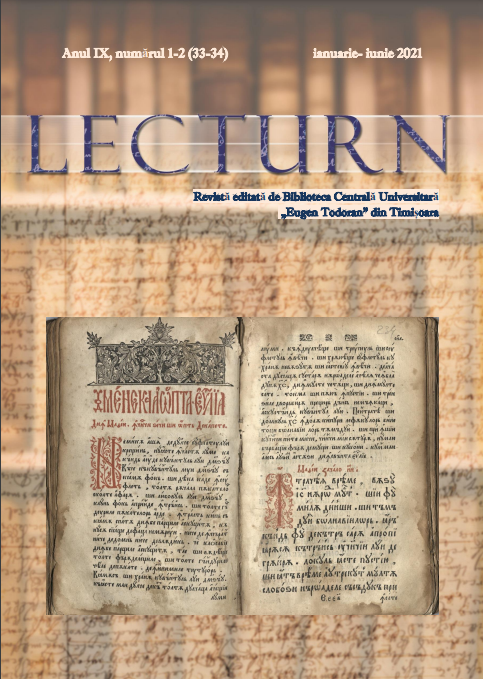
Keywords: communication; typographic industry; legislation; newspapers; radio; television;
The history of culture, communication and publicity would not have been possible without the development of the typographic industry and of several innovations such as the telegraph, the telephone, the radio and television and, in the past years, the internet. The purpose of this study is to show how mass communication became prevalent, a process that took place in several stages, and to highlight the role that technical evolution played in the professionalization of communication specialists and in the legislative changes that this process brought on. The result was a significant one, as more and more people could take part in the information exchange facilitated by various elements of mass communication.
More...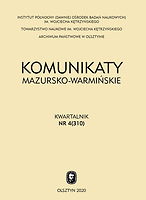
Keywords: Warmia; Orneta; the parish church of St. John the Baptist; the inhabitants of Orneta (personalities)
More...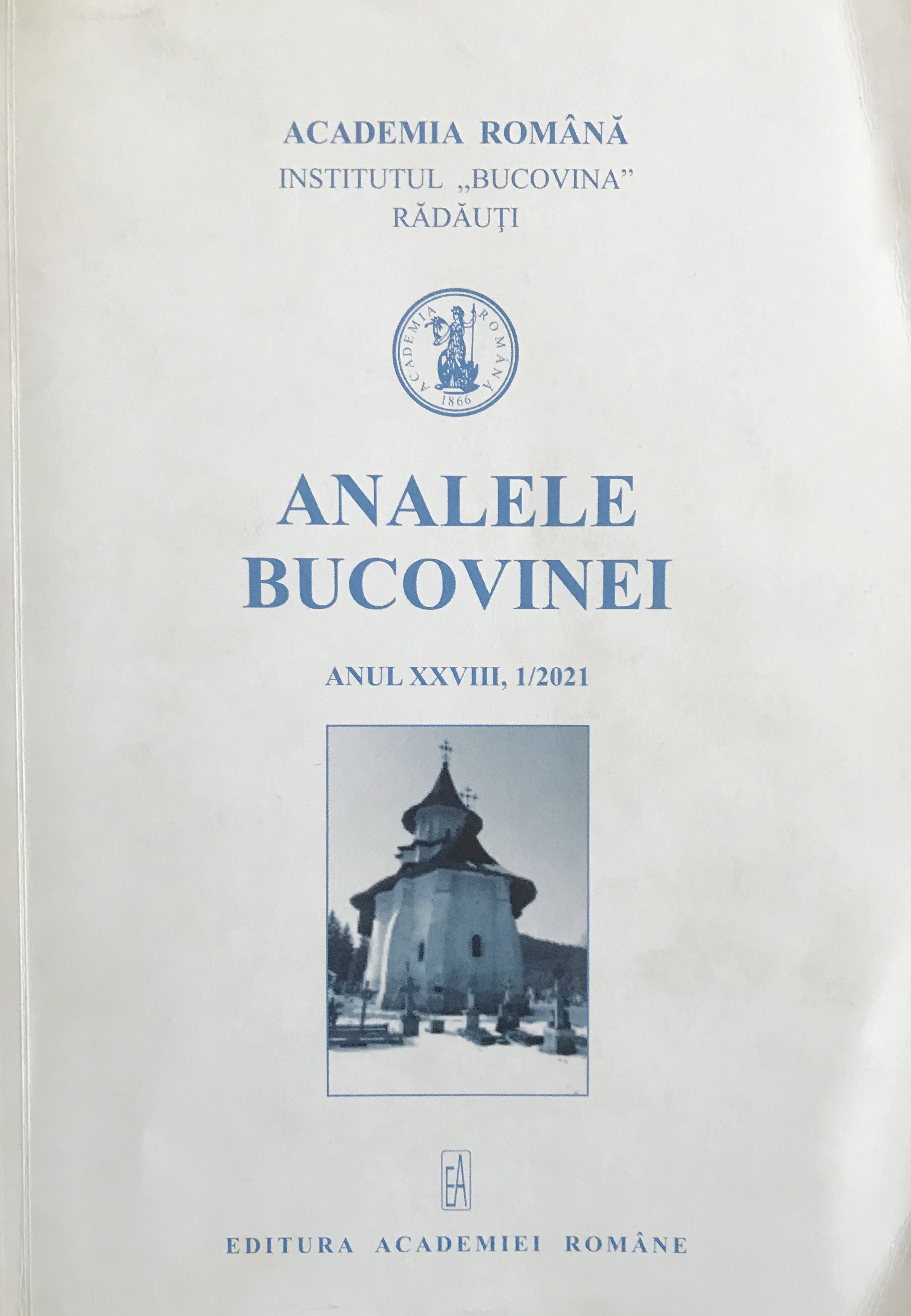
Keywords: Bukovina; Aurel Onciul; Australian; discourse; translation; Reichsrat; Treaty of Brest-Litovsk;
The following paper includes considerations on our intention to translate into Romanian the speaches of all the Bukovinian members of the Chamber of Deputies of the Cisleithaniaʼs Parliament, held in the last session before the collapse of the Austrian Empire (October 20, 1909, – March 20, 1911). In particular, we refer, not by chance, to a speech given by Deputy Aurel Onciul during the debates that took place on December 19, 1917, before the start of the peace negotiations in Brest-Litovsk. We inserted the translation of this speech at the end of the paper. In order not to cause the disagreement of the historians, we did not venture to include in our text fragments of historical exegesis of the speech. We understand our work only as a preliminary test of the usefulness of our translating project in “refreshing” the documentation used by historians and other specialists in their research work.
More...